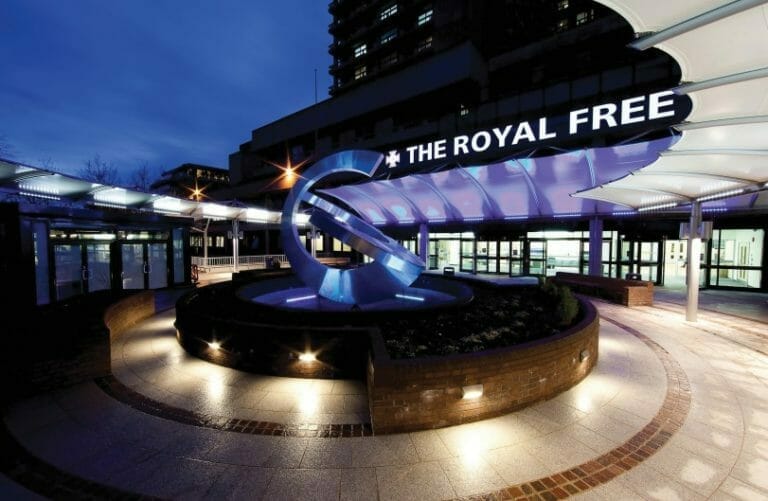Bladder cancer treatment

Our private Bladder cancer treatment services are provided at the Royal Free Hospital, Hampstead and Hadley Wood Hospital, High Barnet.
To find out more about our hospitals click here:
Bladder Cancer is a condition where tumours (abnormal tissues) develop in the lining of the urinary bladder. This can spread further to involve the bladder muscles or spread to other areas of the body (metastasis).
Common symptoms of bladder cancer may include:
Blood in the Urine (Hematuria). This is the most common symptom for those with bladder cancer though it may not be painful it is important to visit your GP should you show this symptom.
- Pain when urinating
- Urinating small amounts frequently
- Constant bladder infections
- Pain in the lower back around the kidneys (flank pain)
- Swelling in the legs
- A growth in the pelvis near the bladder (pelvic mass)
At the Royal Free PPU our expert Urology consultants and private clinic allow us to provide a rapid and efficient service for bladder cancer diagnostics and treatment of a wide range of urological conditions, tailored to the individual patient, with the full support of the latest equipment and clinical expertise available.
We offer the following bladder cancer diagnostics to our patients:
- Flexible cystoscopy – This involves a thin flexible cystoscope being inserted into the urethra to look for any problems within the bladder. A local anaesthetic is applied to the urethra to numb it. The cystoscope is then inserted into the urethra and your doctor will gently move towards the bladder.
- Rigid cystoscopy – this involves using a firm cystoscope that does not bend to pass through the urethra and examine the bladder area looking for cells that may have formed a tumour. This is performed under either a local or general anaesthetic and the cystoscope is inserted through the urethra and slowly moved towards the bladder.
We offer the following treatments for bladder cancer and other patient issues:
- Trans-urethral resection of bladder tumour (TURBT) – A surgical procedure that is used both to diagnose bladder cancer and to remove cancerous tissue from the bladder using a cystoscope and a special tool called a resectoscope. It is usually performed under a general anaesthesia. It typically requires a 1-2 days hospital stay.
- Ureteric stent insertion – This procedure involves passing a long plastic tube, through the urethra to relieve blockage of the kidneys.
Please see the British Association of Urological Surgeons (BAUS) patient information leaflets regarding Bladder Cancer below:
Get in touch
